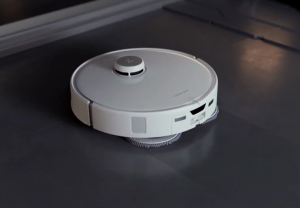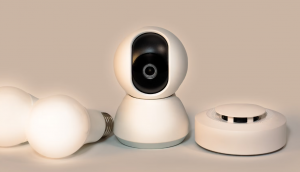The Ultimate Guide to Buying a Home Security System
Introduction
In today’s world, safeguarding our homes has become a top priority. With rising concerns about burglary and home invasions, a robust home security system isn’t just a luxury; it’s a necessity. But with so many options available, how do you choose the right one? This guide aims to walk you through everything you need to know to make an informed decision about buying a home security system.
Understanding Home Security Systems
What is a Home Security System?
A home security system is a network of devices and services designed to protect your home from intruders and emergencies. They typically include alarms, cameras, motion detectors, and sometimes smart home features that can alert you to potential threats.
Types of Home Security Systems
Understanding the various types of home security systems can help you find the best fit for your needs.
Wired Security Systems
Wired systems connect through physical cables and are generally more reliable but can be costly to install and less flexible for future upgrades.
Wireless Security Systems
Wireless systems use radio signals to communicate and are easier to install, making them a popular choice for homeowners.
Smart Home Security Systems
These systems integrate with smart home technology, allowing you to control security features from your smartphone, receive alerts, and even view live feeds from security cameras.
Assessing Your Security Needs
Before you dive into purchasing a security system, it’s crucial to assess your specific needs.
Evaluating Your Home’s Vulnerabilities
Take a walk around your property and identify weak points such as unlocked doors, poorly lit areas, or windows without security features.
Determining the Level of Security Required
Consider your neighborhood’s crime rate and whether you need basic protection or advanced features. For example, families with children may require different security levels than single professionals.

Key Features to Look For
Once you know your needs, it’s time to look for specific features that will meet those requirements.
Monitoring Options
One of the primary components of a security system is monitoring.
Professional Monitoring vs. Self-Monitoring
Professional monitoring means a team will watch your system 24/7, notifying you and authorities in case of an alert. Self-monitoring is more cost-effective but relies on you to act during emergencies.
Cameras and Motion Sensors
High-quality cameras with night vision and motion sensors are essential for detecting and recording suspicious activities.
Smart Home Integration
If you’re already using smart home devices, consider a system that integrates seamlessly with them. This can simplify your routine and improve your home’s overall security.
Mobile Alerts and Remote Access
Being able to monitor your home via smartphone, receiving alerts for unusual activity, and controlling your system remotely is invaluable in today’s fast-paced lifestyle.
Setting a Budget for Your Security System
While safety is priceless, setting a budget is essential.
Understanding Costs
Security systems can vary significantly in price. Understanding the upfront and ongoing costs will help you find a system that fits your financial situation.
Comparing Costs vs. Features
When comparing systems, weigh the features you get against the price. Sometimes, paying a little more can provide significant benefits in security and peace of mind.
Researching Home Security Providers
Once you have a budget, it’s time to research providers.
Reputation and Customer Reviews
Check online reviews and ratings. A company with a strong reputation and positive feedback from customers is more likely to provide reliable service.
Warranty and Customer Support
Good warranties and responsive customer support are indicators of a trustworthy provider. Ensure that you understand the terms before making a decision.
Installation Options
The next step is deciding how to install your system.
DIY Installation
Many wireless systems allow for easy DIY installation. This can save you money, but be prepared for the time and effort involved.
Professional Installation
For those who prefer a hands-off approach, professional installation can ensure everything is set up correctly and efficiently.
Conclusion
Buying a home security system doesn’t have to be daunting. By understanding your needs, researching options, and considering key features, you can find the perfect solution for your home. Whether you opt for a wired or wireless system, professional monitoring or self-monitoring, the goal is to create a safer environment for you and your loved ones.













Post Comment